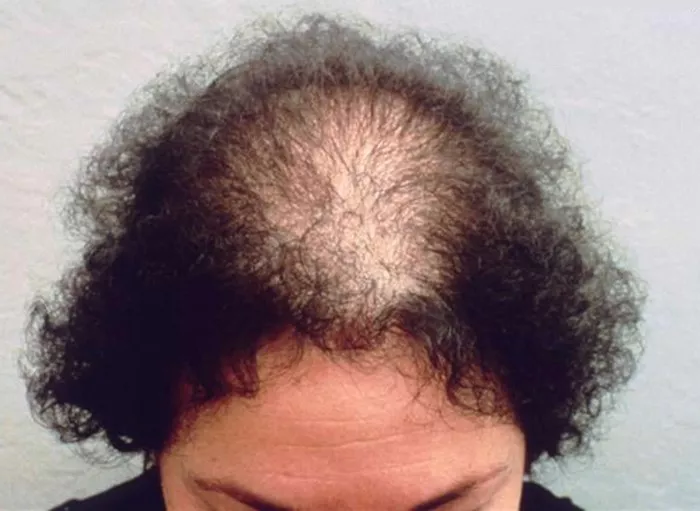Youth is often associated with vitality and vigor, making it all the more distressing when you notice your hair falling out at the young age of 18. In this article, we will delve into the various causes of hair fall in young adults and explore potential solutions to help combat this unexpected concern. Understanding the reasons behind hair fall is the first step toward addressing the issue effectively.
Common Causes of Hair Fall at 18
Understanding the potential causes of hair fall at a young age is crucial for finding the right solutions. Some common culprits include:
1. Genetics: Family history plays a significant role in determining your predisposition to hair loss. If your parents or grandparents experienced hair loss, you may be genetically prone to it as well.
2. Hormonal Changes: Adolescence and young adulthood are periods of significant hormonal fluctuations. Hormonal imbalances can disrupt the hair growth cycle and lead to hair fall.
3. Stress and Anxiety: The pressures of school, work, and social life can lead to increased stress, which, in turn, can trigger hair fall. Chronic stress affects hormonal balance and negatively impacts hair health.
See Also: What Does an Early Receding Hairline Look Like: A Quick Guide
Nutritional Deficiencies
Inadequate nutrition can play a major role in hair fall among young adults. Common nutritional deficiencies that may lead to hair loss include:
1. Iron Deficiency: Low iron levels can cause hair thinning and loss. A diet rich in iron from sources like lean meats, beans, and spinach can help prevent hair fall.
2. Vitamin D Deficiency: Vitamin D is essential for healthy hair growth. Spending time outdoors and incorporating vitamin D-rich foods into your diet can alleviate this deficiency.
Lifestyle and Hair Fall
Certain lifestyle choices can contribute to hair fall at a young age. Here are some important factors to consider:
1. Overstyling: Excessive use of heat styling tools, tight hairstyles, and harsh hair products can damage hair and lead to hair fall. Embracing more gentle hair care practices can help mitigate this issue.
2. Diet and Hydration: Maintaining a well-balanced diet rich in essential nutrients, along with proper hydration, is crucial for promoting hair health. A deficiency in nutrients can result in hair loss.
3. Sleep and Stress: Prioritizing adequate sleep and stress management techniques can help regulate hormone levels and reduce the risk of hair fall.
Preventive Measures for Young Hair Fall
Preventing hair fall at a young age is preferable to treating it once it becomes a significant concern. Consider these preventive measures:
1. Gentle Hair Care: Avoid over-brushing or excessive combing, and be gentle when handling your hair, especially when wet. Use a wide-tooth comb to minimize damage.
2. Heat Styling Precautions: If you must use heat styling tools, apply a heat protectant and use the lowest heat setting necessary to prevent damage.
3. Hair Accessories: Choose hair accessories that don’t pull or strain your hair, and avoid tight hairstyles that can weaken the hair shaft.
4. Regular Check-Ups: Young adults experiencing unexplained hair fall should consult a healthcare provider for a thorough evaluation and to rule out underlying health issues.
Professional Treatments for Young Hair Fall
In more severe cases of young hair fall, professional treatments may be necessary. These treatments are typically administered by dermatologists or hair restoration specialists:
1. Topical Treatments: Medications like minoxidil can be applied topically to stimulate hair growth and slow down hair fall.
2. Oral Medications: Some oral medications can help address hormonal imbalances and prevent hair fall.
3. Platelet-Rich Plasma (PRP) Therapy: PRP therapy utilizes your blood’s plasma to stimulate hair growth and reduce hair fall.
4. Hair Transplant: In advanced cases of hair loss, hair transplant surgery is an option, involving the transplantation of healthy hair follicles to areas with thinning or no hair.
When to Seek Professional Help?
If your hair fall at 18 continues or worsens, it’s essential to consult a healthcare professional for a thorough evaluation and personalized advice. Early intervention can be crucial in managing hair fall effectively and preventing further loss.
In conclusion
Hair fall at a young age can be disconcerting, but understanding the causes and potential solutions is essential for addressing the issue. Whether it’s genetics, hormones, or lifestyle factors, there are various ways to manage and mitigate hair fall. If you’re experiencing significant hair loss, seeking professional guidance can help you navigate the best course of action for your specific situation.


